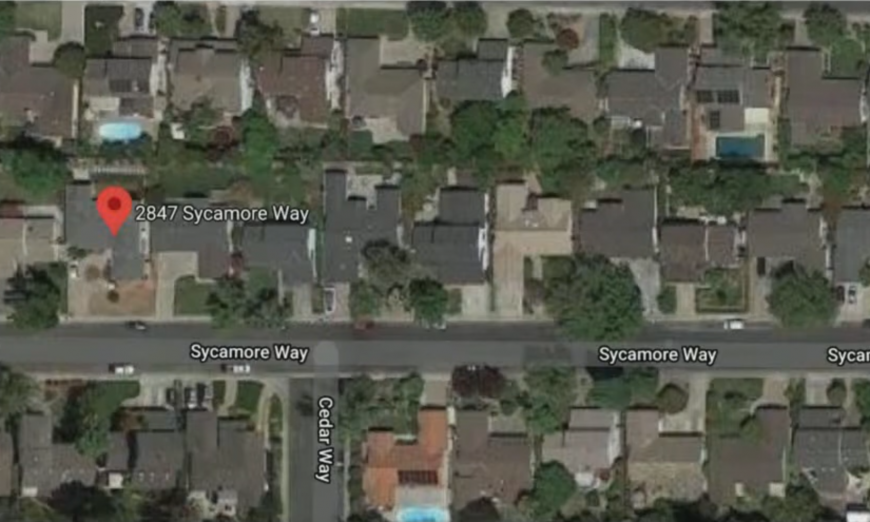The appeal of a single family home addition at 2847 Sycamore Way that was brought before the Santa Clara Planning Commission on Wednesday, Oct. 14 resulted in tension between property owners and neighbors.
The project’s approval was subsequently appealed by neighbors who said that the addition didn’t conform with the neighborhood and that it would block views of their open space. The project proposes a 499 square foot addition that would add a fourth bedroom to the front of the house as well as a 48 square foot covered porch and 71 square feet of additional garage space. The changes would result in a 2,777 square foot, four-bedroom, 2-story home with a 466 square foot garage on a lot of 7,405 square feet. The plan is a similar but separate one to a proposal by the applicants in 2018 to build on their especially large front yard.
Planning staff found that the project conformed to both zoning code and neighborhood character and so recommended that the Planning Commission deny the appeal and uphold the project’s approval. Staff further commented that the neighborhood lacks additional protections that a recognized historic district would have, and that people are allowed to make changes to their homes over time, and that there’s no mandate that neighborhoods have to stay exactly as they were when originally developed.
Some commissioners lamented that the proposal resulted in conflict between neighbors and wished that the plans had been modified to help “keep the peace.” However, most were in agreement that the homeowners were well within the requirements to proceed with the addition. Commissioners decided to deny the appeal and uphold the approval, though the appellants would be allowed to appeal to City Council if desired.
Climate Action Plan Update
A second study session on the City’s Climate Action Plan update was presented at the meeting to show options for reducing greenhouse gas emissions, which primarily come from the transportation and commercial sectors in addition to residential sources. One primary plan of action is to help data centers transition from diesel to lower carbon back-up generators. Other steps are to develop a Silicon Valley Power data center working group to implement renewable electricity purchasing options for commercial customers and reduce the overall vehicle miles traveled (VMT) in the city.
City staff presented three overarching options for achieving GHG emissions reductions: reducing emissions to 40 percent below baseline levels by 2030 and 80 percent by 2050, carbon neutrality by 2045 and a third unspecified target that would exceed requirements of state legislation. Although staff recommended the second option as being most achievable several commissioners balked including Commissioner Suds Jain who said that doing the bare minimum would show poor leadership on the part of Santa Clara.
“Let’s keep Santa Clara the center of what’s possible,” said Commissioner Anthony Becker. Commissioner Nancy Biagini concurred that she’d like the city to be ahead of the curve on the issue.
Commission Chair Lance Saleme suggested that by encouraging companies to promote remote work options for employees even after the pandemic, that VMT could be eliminated. However, he explained that one stumbling block is adequate high-speed internet access for residents. “I don’t understand how we can be the heart of Silicon Valley and be struggling to have the very best of internet capability,” he said.
“5G is going to be a big part of what people are going to use and 5G is not going to be based on large cell towers but it’s going to comprise a lot of smaller cells to support a large number of users,” added Commissioner Yuki Ikezi. “The City can take part in investing in it.”
Beyond reducing emissions, Commissioner Priya Cherukuru said that she wants to see attention paid to dealing with increased flooding due to sea level rise as well as extreme heat waves and the social and economic consequences of these climate change impacts.
The next Planning Commission meeting is on Wednesday, Oct. 28.







